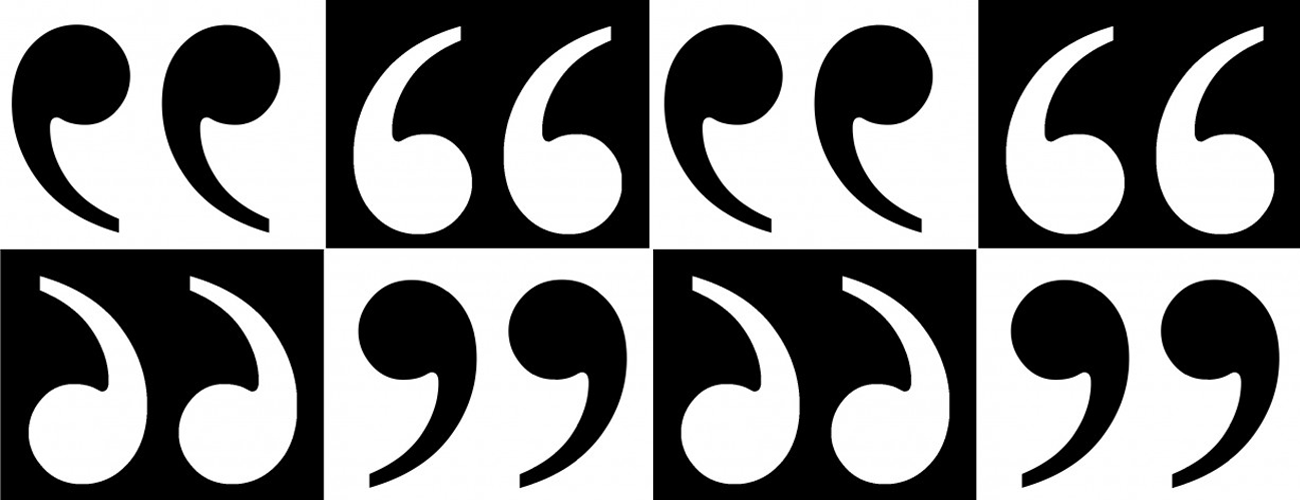Sign up for the daily CJR newsletter.
We’ve written about the overuse of dashes in text, how a dash is not a hyphen, how to use a semicolon and how to use a colon, and ad nauseam about commas.
We haven’t talked about what to do when punctuation marks collide. But the opportunity arose in a query from a friend wondering how to punctuate a sentence like this:
His question “How do I get enough to eat?” does not have a simple answer.
The choices the friend offered were these:
His question, “How do I get enough to eat?”, does not have a simple answer.
His question, “How do I get enough to eat?,” does not have a simple answer.
Which is correct? Or is there another choice?
Actually, this is going to be a two-part discussion. And, by now, you should know that most of the time the answer is “it depends.”
We’ve made passing reference to the fact that commas and periods always go inside quotation marks, at least in American English. So logic would say the second choice is correct. But doesn’t that look awful? And if you put the comma outside the quotation marks, isn’t that violating the “rule” that commas always go inside the quotation marks?
To discuss part of this, we have to introduce the concept of the “attributive tag.” These happen in journalism a lot, since we attribute a lot. In the sentence “ ‘This plan will cause our taxes to go up,’ he said,” the phrase “he said” is the attributive tag, and it’s supposed to be set off with a comma, which, in this case, comes before the quotation mark. But turn that phrase into a question, and you’ve got trouble: Does “ ‘Will this plan cause our taxes to go up?’ he said” need a comma, since “he said” is still an attributive tag? (And can we possibly use more quotation marks, singles and doubles, in a single paragraph?)
In most style guides, no comma is needed or wanted when a question mark in a quotation precedes an attributive tag. The Associated Press Stylebook says: “The question mark supersedes the comma that normally is used when supplying attribution for a quotation: ‘Who is there?’ she asked.”
Here comes one of the “buts.”
But if what follows the question mark is not attributive, that comma might be needed for other grammatical reasons. The Chicago Manual of Style specifies that if the question mark (or exclamation point) is part of a title, a comma should be used as it would be ordinarily:
“Are You a Doctor?,” the fifth story in Will You Please Be Quiet, Please?, treats modern love.
Of course, Chicago puts many titles in italics. The Associated Press version would be:
“Are You a Doctor?,” the fifth story in “Will You Please Be Quiet, Please?,” treats modern love.
And yes, it sure does look ugly.
But what if the sentence doesn’t have a title or an attributive tag? Our friend’s example doesn’t.
We’ll tackle that next week. You can quote us on that.
Has America ever needed a media defender more than now? Help us by joining CJR today.







